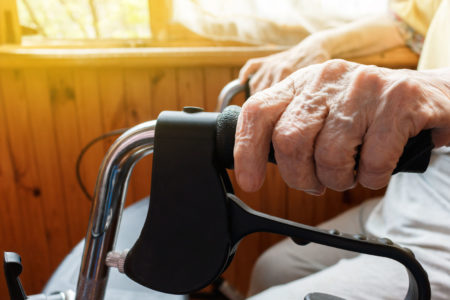
Bill C-7 expands access to medical assistance in dying (MAiD) in response to a 2019 Quebec Superior Court ruling that the MAiD law’s “reasonably foreseeable death” condition violated the Constitution. So the federal government is moving to change the law to expand access to MAiD in a way that will “reduce suffering, while also supporting individual autonomy and freedom of choice,” according to Justice Minister David Lametti.
But Bill C-7, introduced on February 24, is just the first step. Come June, the Minister is scheduled to start a full review of MAiD laws with an eye to further changes. But will he be asking the right questions?
The federal focus is primarily on access to MAiD. That’s an important issue, but it isn’t the only one to consider. There are at least two additional questions that deserve careful consideration: How will changes to MAiD affect those who do not desire it? What do the changes mean for the broader health care system? So far, there is little evidence the federal government intends to give such questions much weight.
The question of access
Right now, public opinion seems to be tracking with the government’s focus. A January poll suggested that 80 percent of Canadians agreed “it should be easier for individual Canadians to make their own end-of-life decisions,” contrasting with the 20 percent who preferred “lots of safeguards.” With media reporting moving stories about the seemingly needless prolonging of suffering at the end of life, this is hardly surprising. For anyone who has stood beside the deathbed of a loved one wondering about the point of prolonging life when the end seems inevitable, the sentiment is understandable.
This attitude also reflects a cultural change. When the Supreme Court of Canada first discussed MAiD in 1993, the decision included 299 references to suicide. The minority in the 5-to-4 decision argued that any prohibition on assisted suicide was arbitrary, since suicide itself was not illegal. Since an able-bodied person would be physically capable of committing suicide, they argued, it would be arbitrary and unjust to consider it a crime to help a physically disabled person do so.
By the time the Supreme Court reconsidered the matter in the Carter case of 2015, the terms of reference framing the debate had changed. References to suicide shrank to just 45, with medical assistance and personal rights now in the spotlight. Dying with Dignity celebrated the replacement of what it called “stigmatizing” language about suicide, arguing that “suicide is motivated by feelings of hopelessness,” while the push for the legalization of medically assisted dying “has been driven by hope.” Over two decades, the issue morphed from considering the justification for ending life to seeing MAiD as medical care that alleviates suffering.
The two broad views on MAiD are likely irreconcilable. Within a democratic polity, it is for the majority of citizens, the courts and legislators to implement a MAiD regime that reflects society’s values. While increasing access to MAiD seems to match cultural trends, it should be considered in isolation.
The question of protection
Existing law recognizes that offering MAiD on demand, no questions asked, would harm many vulnerable people. However, legal safeguards are hardly a certainty in practice. In April 2019, the United Nations Special Rapporteur on the Rights of People with Disabilities, Catalina Devandas-Aguilar, issued a report very critical of Canada’s safeguards.
I am extremely concerned about the implementation of the legislation on medical assistance in dying from a disability perspective. I have been informed that there is no protocol in place to demonstrate that persons with disabilities have been provided with viable alternatives when eligible for assistive dying. I have further received worrisome claims about persons with disabilities in institutions being pressured to seek medical assistance in dying, and practitioners not formally reporting cases involving persons with disabilities. I urge the federal government to investigate these complaints and put into place adequate safeguards to ensure that persons with disabilities do not request assistive dying simply because of the absence of community-based alternatives and palliative care.
Although various reports have been commissioned on the extension of access, these concerns do not seem to have registered strongly with either the public or policy-makers; only a few isolated media reports have taken up the issue. In fact, the Canadian Medical Association Journal sought to dispel the concern that socially and economically vulnerable people disproportionately seek MAiD. It reported that since legalization in 2016, Ontarians who received a lethal injection at their request were more likely than the general population to have higher incomes, be younger and be married. Ironically, this study misses the point. How can we be sure that those who died via MAiD weren’t pressured into that choice? While finding hard data might be difficult, one needs simply to spend time with senior citizens within faith communities to hear first-person concerns of a lack of confidence in the health care system since MAiD’s introduction. In other jurisdictions with MAiD, some have started carrying “anti-euthanasia cards” as confidence in the integrity of the health system has eroded.
The question for health care
And then there is the implementation of the law. Where does MAiD fit within the scope of health care delivery? After decades of discussion and relative consensus regarding the importance of providing palliative care, its provision remains limited. A 2018 Canadian Institute for Health Information report found only 6 percent of residents in long-term care facilities who died in 2016-17 were recorded as receiving palliative care in the last year of their life. Medical schools are revamping curricula to prepare doctors to deal with MAiD requests, while it appears that training for palliative care remains underresourced.
The impact on health care professionals who are required to respond to patient requests for MAiD remains troubling. Many doctors believe MAiD is unethical and that any obligation to refer patients for it violates their Charter-protected freedom of conscience. Related cases are working their way through the courts. Others seek legislative solutions, like a recent Alberta bill to protect conscience rights, which became the subject of considerable controversy.
However this is resolved in law, MAiD has genuinely negative effects on those who work in the health care system or are considering a career there. Winnipeg family doctor Larry Rados recently spoke out about the dilemma many medical professionals face. “I don’t speak for all of them, but many have a discomfort, an angst, if not an emotion more serious than that about this whole issue,” he said. “We went into this to wear the white coat of the healer. I heard one person say we are now being asked to wear the black robe of the executioner. That does not sit well with a lot of physicians. It doesn’t sit well with me.”
The insistence that MAiD provisions are an obligation of all health care providers will result in a segment of the population self-selecting out of medical careers. We cannot escape the deep-rooted reality that a measurable portion of people view MAiD as something different than the provision of health care, and they will not place themselves in a position where they are forced even to refer patients to ways to end their life. Institutions can’t escape the changes, either. The abrupt cancellation of funding for a hospice in Delta, BC, by the provincial government and the shocked and outraged reaction to it reveal the deep-rooted issues at stake. While the language of the public debate has changed, for many the issue remains one of assisting a suicide.
A civil polity recognizes the fragility of consensus on contentious questions by implementing the will of the majority while protecting the minority. How will the federal government treat the minority on this question when its legislative review begins in the summer? Will all questions get equal consideration?
Photo: Shutterstock, by Ocskay Bence.









